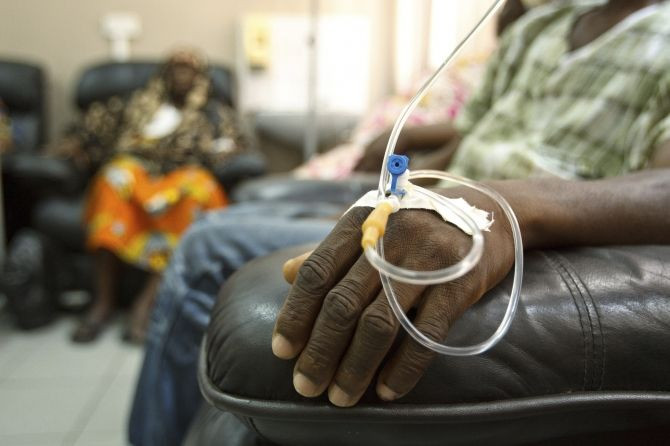1 in 6 Cancer Cases Are Preventable, Caused by Infections

More than one in six cancers are caused by preventable or treatable infections, according to new research.
Researchers found that of the of the 12.7 million new cancer cases worldwide 2 million cancer cases and 1.5 million cancer deaths worldwide were caused by viruses, bacteria and parasites in 2008, according to findings published May 9 in The Lancet Oncology journal.
“Infections with certain viruses, bacteria, and parasites are one of the biggest and preventable causes of cancer worldwide,” wrote study authors Dr. Catherine de Martel and Dr. Martyn Plummer.
The findings show that Helicobacter pylori, hepatitis B and C viruses (HBV and HCV), and human papillomaviruses (HPV) were responsible for 1.9 million of those infection-related cases, and that most of the new cancer cases were gastric, liver, and cervix uteri cancers, according to scientists from the International Agency for Research on Cancer in Lyon, France.
Cervical cancer accounted for half of infection-related cancer cases in women and liver and gastric cancers accounted for more than 80 percent of preventable cancer cases in men.
“Application of existing public-health methods for infection prevention, such as vaccination, safer injection practice, or antimicrobial treatments, could have a substantial effect on future burden of cancer worldwide," according to report.
Researchers said that there are available vaccines that can protect against human papillomavirus (HPV), which is linked to cervical cancer, and against the hepatitis B virus which can cause liver cancer.
Stomach cancer can also be prevented by treating bacterial infection H. pylori in the gut with an antibacterial regimen, according to researchers.
Researchers estimated the proportion of infection-related cancer causes by calculating the population attributable fractions using data from a variety of sources including WHO statistics on incidence estimates for 27 cancers in 184 countries.
Infection-related cancer cases, on average, are about three times more prevalent in less parts of the world, like in sub-Saharan Africa, where 32.7 percent of cancers are by an infection, compared to developed countries like the U.S. and Canada where infections were accountable for 4 percent of cancer cases in North America.
Australia and New Zealand had the lowest rates of infection-related cancers at 3.3 percent, according to research estimates.
“The 2011 UN high-level meeting on non-communicable diseases highlighted the growing global agenda for prevention and control of non-communicable diseases,” researchers concluded. “But although cancer is considered a major non-communicable disease, a sizable proportion of its causation is infectious and simple non-communicable disease paradigms will not be sufficient.”
"Their estimates show the potential for preventive and therapeutic programs in less developed countries to significantly reduce the global burden of cancer and the vast disparities across regions and countries," Goodarz Danaei from Harvard School of Public Medicine, Boston wrote in an accompanying editorial.
"Since effective and relatively low-cost vaccines for HPV and HBV are available, increasing coverage should be a priority for health systems in high-burden countries," Danaei added.
Published by Medicaldaily.com



























